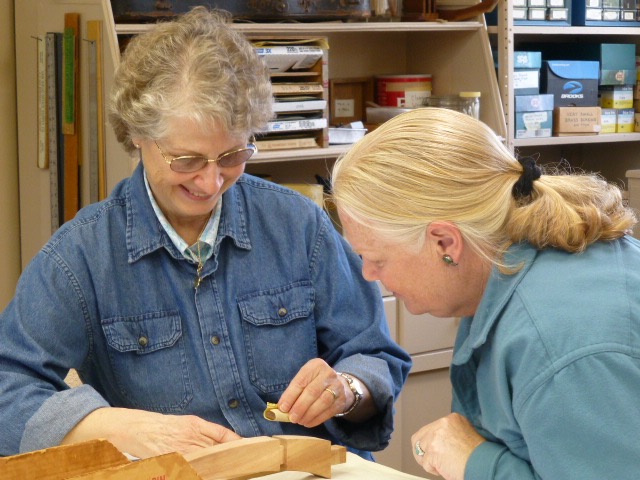Balance. Purpose. Enlightenment.
Lemurian Advice About Advice
Advice is seldom welcome. Those who need it most like it least. – Johnson

In his history of the Lemurian civilization, Dr. Stelle tells of Rhu, the greatest archer of that age, trying to help his brother make a more effective bow. But in the competitive spirit of brothers, Grut would rebel. In time, Grut became interested enough to actually ask Rhu about this. And then he followed his directions to the letter! This story highlights an important Lemurian principle about advice and a well-loved saying from those days,
Advice unasked for is much like salt. A little of it goes a long way. – Lithargos
Lemurians believe every adult has a divine right of self-determination, the right to accept help (advice) from others, or not. There’s a delicate balance to be observed, and giving advice when it is neither asked nor wanted can be a serious intrusion into others’ lives.
How do you feel about advice? Do people listen to your efforts to help, and do they seem to benefit from your words of wisdom? Turning this around, do you listen to and benefit from advice others direct your way?
Have you tried to correlate your giving and receiving of advice? If your hackles rise when anyone tries to suggest a tip or show you a better way of doing something, how does this affect your own efforts to advise others? If you think about advice from others as a pain in the neck, does this deter you from giving advice?
On the other hand, if you look for and find the good in the help people offer you, does this make you a wiser and more competent advisor?
Benjamin Franklin wrote:
Those who cannot be counseled, cannot be helped…there is nothing to be done but wait until experience comes forth to teach its lessons. We can give advice, but we cannot give conduct.
So while we have the right to disregard all help from others – the natural tendency of every two-year-old – we find it pretty slow going if we insist on meeting every experience entirely on our own without guidance or assistance. Yet, as the quotation admits, experience is the best teacher. An experienced swimmer can give us all the best pointers, but until we get in the water and try it, there’s a lot we still have to learn for ourselves.
There’s a problem with advice: to the receiver, it’s only information, not experience. It may work for the person who tells us about it, like a health remedy Aunt Sheila swears by but doesn’t do a thing for us. So we have reason to be skeptical about advice, and careful about offering it. We don’t want to seem less intelligent or like we need advice, of course. But don’t you admire people who listen to and value others’ input?
Sometimes our best help is simple, unspoken support. But what if we have a sound, provable bit of information we very much want to offer a struggling friend who seems deserving and could surely benefit from the counsel we could so easily give him? How can we offer this in a way that will be most acceptable and least offensive? Coleridge offers this poetic suggestion we could all benefit from considering:
Advice is like snow; the softer it falls and the longer it dwells, the deeper it sinks into the mind.
Copyright © 2016 Lemurian Fellowship
10 thoughts on “Lemurian Advice About Advice”
Comments are closed.


In my coaching practice I have a need to be very mindful of giving unwanted advice. I ask many more questions as in the Socratic method of learning. In this way, I find that my client finds his/her own way to solving their challenges.
And undoubtedly, the advice you give is much closer to what’s needed because you do ask so many questions!
What a great blog. Advice-giving is still a stumbling block I tend to trip over, particularly with my grown children. How fortunate to have so many examples around me of those who have learned the importance of waiting to be asked. Perhaps, through association, I can learn better restraint.
A friend told me that her mother was entering a detox center and that she had expressed a desire to attend some kind of aftercare day program to help her stay sober when she leaves the hospital. Instead of making her own inquiries though, the mother expected her daughter to make all the arrangements, a long running pattern that was a great source of stress for my friend. I was able to furnish her with some helpful information about one such program in our area, and also to advise her to encourage her mother to make inquiries on her own whilst in the hospital, and so begin the necessary process of doing for herself.
Though my help was not actively sought, I was voluntarily made privy to the situation by the daughter, and so felt that this small bit of help and advice did not constitute an unbidden intrusion into the private affairs of the daughter or the mother. I remembered the saying, “advice unasked for is much like salt, a little goes a long way.” It felt good to be able to help out in a simple yet cosmically correct way.
A friend of mine asks, “Why is the world so full of people who think they have the right to tell other people how to think and what to say and how to act?” I second that emotion! It is so great to live in a community where that so rarely happens, and people really do follow the Golden Rule as far as the giving of advice.
I have struggled with this my entire life. My refusal to accept my peer’s advice in my early teens found me looking for somewhere to live. This found me working beside a wise old man whose advice I craved, but would only give it if I could repeat in my own words, the advice he had given me the day before. Soon my friends were seeking my advice, and I would give them everything I knew, but with the intention of impressing them with how much I knew. I figured that they could sort out what was good for them and reject what wasn’t, but that approach often led to deep religious debates, or arguments that left us both confused and frustrated. About this time I found the Lemurian Philosophy, and began what for me was a long process of reorganizing my priorities, and balancing my enthusiasm with another’s right of self determination. I’m still working on this, but so far I’ve found that the key to giving helpful advice, is to create an environment in which the other person feels safe enough to share their vulnerabilities and ask for it. My approach is to try to listen attentively, keeping all judgmental thoughts out of my mind and to miss no opportunity to show respect. And if need be, perhaps ask privately ‘Are you okay?’
Chris’s thought-provoking comment could easily be turned into a promising blog article with just a few specific examples. We’d like to hear more about that wise old man and his advice!
Asking for help is a sign of maturity and the realization that you are not all knowing. In working with others who are more knowledgeable in the type of work we are engaging in, I have no problem asking for and using their advice. I do this often when working in the Lemurian Crafts.
My problem occurs when I think my experience and knowledge trumps that of those I am working with. Here I often stumble and fall, and I’m reminded about pride going before the fall.
I keep a supply of bandages and dressings handy! I’m still working on keeping a supply of humility handy as well.
I read this the other day – and I couldn’t help but think how timely and valuable this article was to me. My son was coming to see me the very next day. He is unfortunately going through some difficulties. How do I talk to him? And how do I help/advise him in a good way?
This article instantly reminded, and offered me poetic and practical advice all in one – just when I needed it.
When I was an instructor, it was my job to give advice and the advantage of my experience to my students. I found out very quickly that even though they were paying for this opportunity, sometimes my help was ignored; however, the students who made use of my instruction usually could give me pointers as well!